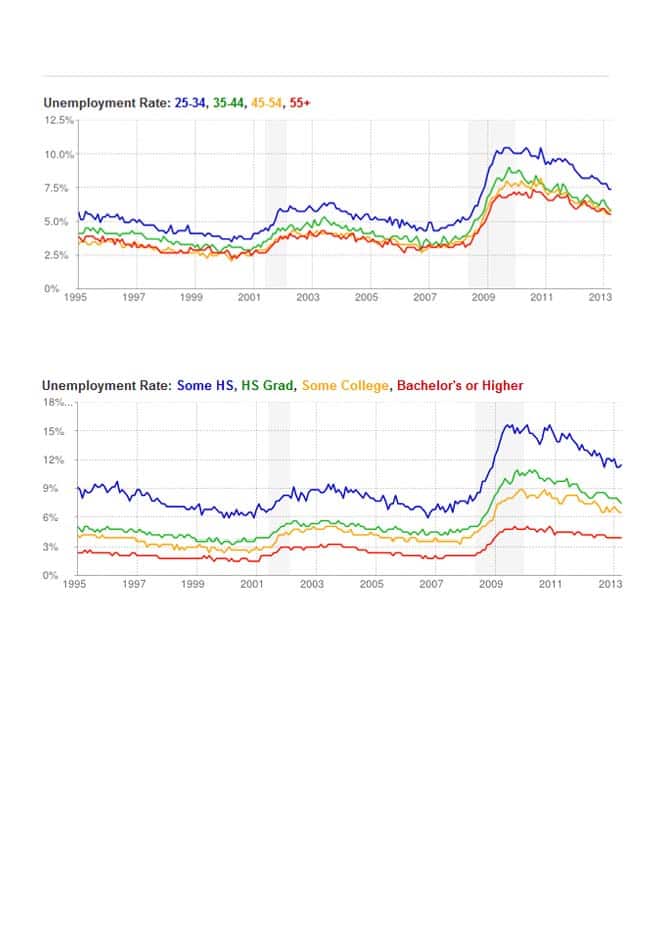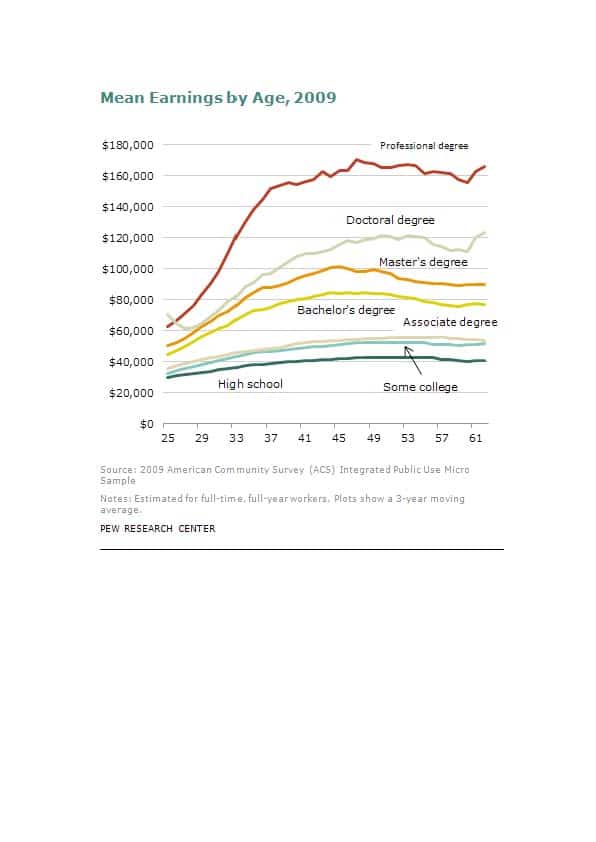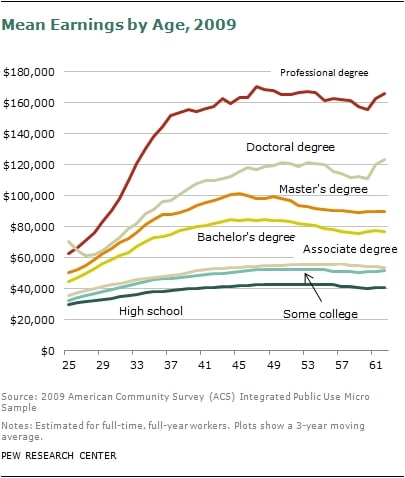Now that college graduation exercises are upon us, you are no doubt hearing reports that young people matriculating from this or that prestigious alma mater are having trouble finding jobs. The easy conclusion seems to be that a college degree doesn’t matter very much anymore in the new economy. But that, of course, is a short-term view; younger people have fewer job-related skills than people who have been employed for a few years, so they generally have trouble getting that first job no matter what their education level.
You can see this in the first chart below; older workers, who have presumably more experience in the workplace, tend to have lower unemployment rates than their younger competition. A recession like 2008-2009 simply reinforced a long-term pattern; it made the jobs situation worse for everybody. Today’s difficult job market continues to allow employers to put a premium on experience.

Longer-term, however, a college degree does seem to confer huge advantages for getting employment. Consider the most recent jobless statistics, broken down by education level:
Jobless rate for persons who have not earned a high school degree: 11.6%
Jobless rate for high school graduates with no college training: 7.4%
Jobless rate for persons with some college training or an associate degree: 6.4%
Jobless rate for persons who have earned a bachelor’s degree or higher: 3.9%
Longer-term, as you can see from the second chart below, people who are educated at every level tend to be less likely to be unemployed than those with lower educational attainment. The better-educated also tend to earn higher incomes over their lifetimes. The most recent statistics compiled by the Pew Research Center suggests that the average high school graduate with no further education will earn about $770,000 over a 40-year work-life, compared with $1.4 million for a worker with a bachelor’s degree.
Parents reading this article, and graduates who are paying off enormous student loans, are no doubt wondering whether Pew was able to factor in the upfront costs of getting the college degree, plus the opportunity cost of four years (or more) spent on campus rather than in the workforce. Even when these considerable costs are factored in, the net gain for a student who graduated from an in-state four-year public university is about $550,000 over a person’s work-life. The third chart shows the various disparities in yearly earnings at different ages; you can see that at age 25, the differences are not huge, but over time, college education begins to create significant income separation.
The bottom line? Ignore the gloomy reports of college graduates having trouble finding work. This part of the career journey has always been a challenge, admittedly made worse by today’s weak job market, but not an indictment of the value of a college education. Education, as George Washington Carver once remarked, is still the golden key that unlocks the doors of opportunity.
Sources:
http://www.pewresearch.org/daily-number/the-monetary-value-of-a-college-education/
http://www.pewsocialtrends.org/2011/05/15/is-college-worth-it/6/#chapter-5-the-monetary-value-of-a-college-education?src=prc-number



